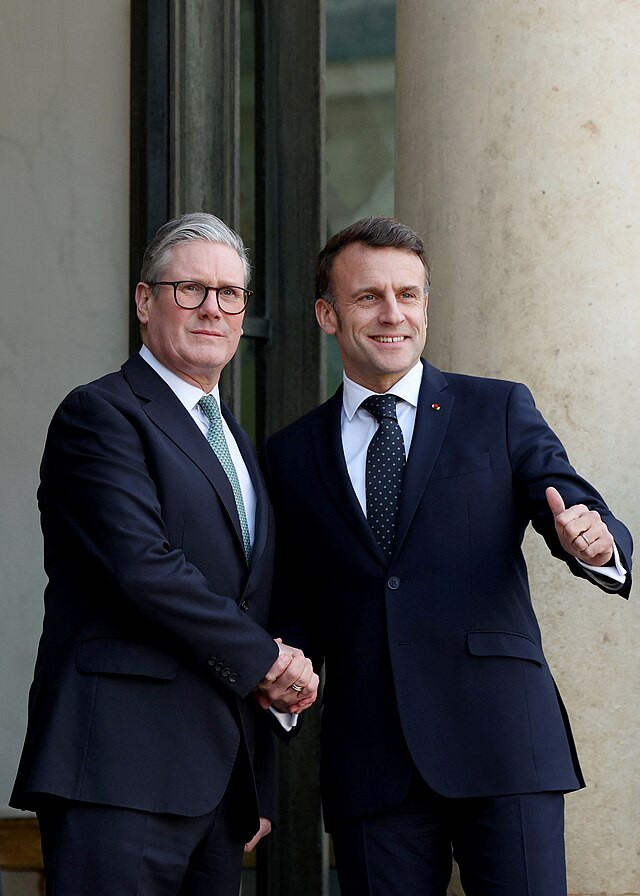European leaders gathered in London on Sunday for high-stakes discussions with Ukrainian President Volodymyr Zelenskyy as Britain and France announced they would take the lead in drafting a peace plan for Ukraine. The proposal, which will be developed in collaboration with Kyiv, is expected to be presented to the United States as part of a broader effort to end the three-year war between Ukraine and Russia.
British Prime Minister Keir Starmer confirmed the initiative ahead of the summit, stating, "We've now agreed that the United Kingdom, along with France and possibly one or two others, will work with Ukraine on a plan to stop the fighting, and then we'll discuss that plan with the United States." The decision follows a contentious meeting between Zelenskyy and U.S. President Donald Trump in Washington, which underscored deep divisions over American support for Ukraine.
During his visit to the White House on Friday, Zelenskyy faced sharp criticism from Trump and Vice President JD Vance, who falsely accused Ukraine of initiating the war and questioned its commitment to reaching a peace deal with Russian President Vladimir Putin. The meeting ended in a diplomatic setback for Kyiv, with the Ukrainian delegation abruptly departing and a planned press conference being canceled.
In response, European leaders have sought to reaffirm their support for Ukraine while also addressing concerns about long-term security guarantees. "The prime minister has this weekend reiterated his unwavering support for Ukraine and is determined to find a way forward that brings an end to Russia's illegal war and guarantees Ukraine a lasting peace based on sovereignty and security," Starmer's office said in a statement.
The London summit, held at Lancaster House, brought together leaders from Germany, France, Denmark, Italy, the Netherlands, Norway, Poland, Spain, Turkey, Finland, Sweden, Czechia, and Romania. NATO Secretary-General Jens Stoltenberg and officials from the European Commission and European Council also attended. The agenda included discussions on increasing military support for Ukraine, intensifying economic pressure on Russia, and defining security arrangements to deter future Russian aggression.
As part of efforts to strengthen Kyiv's financial position, Zelenskyy announced that Ukraine had signed an agreement with the UK allowing access to revenues generated by Russian financial assets frozen in Britain. "I thank the people and government of the United Kingdom for their tremendous support from the very beginning of this war," he wrote on social media. "We are happy to have such strategic partners and to share the same vision of what a secure future should look like for all."
The broader European strategy for Ukraine also includes potential plans for a European military force to be stationed in the country to reinforce a ceasefire, an idea that Starmer described as involving "a coalition of the willing." The British leader has also expressed confidence in Trump's stated desire for peace, despite the U.S. president's reluctance to commit to further military support. "Do I believe Donald Trump when he says he wants lasting peace? The answer to that is yes," Starmer said.
Trump's shift in policy has raised concerns among European officials, who fear that his stance could embolden Putin. Starmer outlined three key elements for a sustainable peace deal: ensuring Ukraine is armed to negotiate from a position of strength, securing a European-led security guarantee, and maintaining a U.S. role as a strategic backstop. "That's the package. All three parts need to be in place, and that's what I'm working hard to bring together," he said.
French President Emmanuel Macron echoed the urgency of European nations taking greater responsibility for their security, calling for increased defense spending. "We should have woken up earlier," Macron said. "I've been saying for years that we need a more sovereign, more united, more independent Europe." Czech Prime Minister Petr Fiala also emphasized the need for greater investment in military capabilities, stating, "If we don't increase our effort fast enough and let the aggressor dictate its conditions, we won't end up well."




